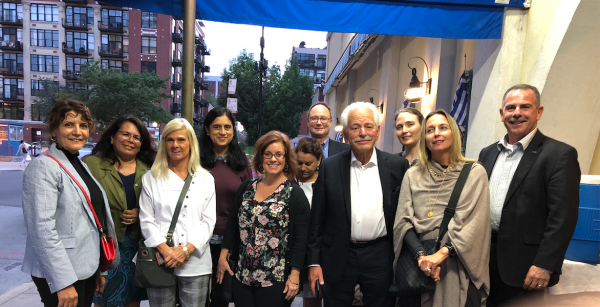ATSU-SOMA awarded $2 million HRSA grant to optimize behavioral health integration at community health centers with a focus on addressing opioid and substance use disorders
Posted: August 23, 2019
A.T. Still University’s School of Osteopathic Medicine in Arizona (ATSU-SOMA) has received a $1,997,735 grant from the Health Resources and Services Administration (HRSA) for its innovative project, Pathways to Primary Care Behavioral Health (PCBH) Integration in the Nation’s Health Centers: Creating Master Adaptive Learners Where the Need is Greatest. In collaboration with ATSU’s Arizona School of Dentistry & Oral Health and the University’s community health center (CHC) partners, ATSU-SOMA will work with CHC providers and ATSU faculty members, as well as medical and dental trainees, to better integrate behavioral health, dental, and primary care at partner CHC sites.
The project will focus on three key elements to improve overall healthcare outcomes: prevention and management of opioid and substance use disorders, interprofessional collaboration, and self-care for healthcare providers and trainees. The goal of the five-year project is to address the nation’s opioid and substance use crisis, while improving access and quality of care for medically underserved, vulnerable populations.
At least 50 providers will receive training through the project, as will 940 medical and dental students. The project launched last month and will be underway through June 2024. It will have long-lasting benefits for CHCs through ATSU’s long-standing relationship with the National Association of Community Health Centers.
Rupal Vora, MD, FACP, assistant dean of student achievement at ATSU-SOMA, serves as project director. Lise McCoy, EdD, ATSU-SOMA’s director of faculty development, is the deputy director.
“As stated by Sir William Osler, ‘The good physician treats the disease; the great physician treats the patient who has the disease,’” says Dr. Vora. “Only through patient-centered, collaborative care can we best ensure access, quality, and value-based care, and more importantly, address the needs of patients. With integrated care at our nation’s CHCs, the goal is to work together to better identify, treat, refer, and follow up on the comprehensive needs of vulnerable patients to ensure that we are providing whole person healthcare.”
REQUIRED STATEMENT: This project is supported by Health Resources and Services Administration (HRSA) of the US Department of Health and Human Services (HHS) as part of an award totaling $1,997,735 with no non-governmental sources. The contents are those of the author(s) and do not necessarily represent the official views of, nor endorsement, by HRSA, HHS, or the US Government.